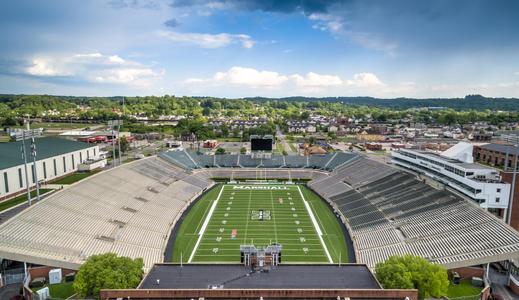As the nation continues to grapple with conversations over police brutality and racism, some police departments are trying to tackle the problem by teaching better communication skills and recognizing bias among their officers.
Police in Jefferson County recently completed a two-day training focused on de-escalation, implicit bias and racial profiling.
About two dozen police officers gathered inside a spacious room, upstairs in the Charles Washington Hall in downtown Charles Town last week. They all work in Jefferson County. Most of them are city police in Charles Town, with some from Ranson and the Jefferson County Sheriff’s Office. Most of the police at the training were white men, but three were women, including one who was Black.
These officers came together to learn skills in de-escalation, which means to approach confrontations with respect, empathy and calm communication.
Cpl. Jason Newlin, who’s white, has 18 years of policing experience, most at the Charles Town Police Department. He said the last time he had training in de-escalation was in 2002.
“I think training like this will show the general public that we’re making an attempt to retrain our thought process and, you know, retraining the way that certain situations can be handled in the way that we speak to people,” Newlin said. “Every human being, whether they’re on the right side of the law or not, have an expectation to be treated with dignity and respect.”
Annual de-escalation training isn’t mandatory in Charles Town, but some West Virginia cities, such as Morgantown, do make it mandatory. Newlin said he thinks training in de-escalation and racial profiling need to happen more often.
“Technology advances, why shouldn’t our training? We have to shoot our guns twice a year to maintain state qualifications for weapons that some have never ever had to use in the field,” he said.
But they don’t receive regular training in communication skills, which Newlin points out, is one of the things they use most.
All police officers in West Virginia are required to have 16 hours of state-approved, in-service, or continued education training annually, according to Charles Town Police Chief Chris Kutcher. It’s department heads, like him, who decide what these annual trainings will include.
“Let’s face it, we know what’s going on in the country. It’s a hot topic. You know, as the chief, I felt now is a really good time to look at our de-escalations, look at our racial profiling,” Kutcher said. “My focus with this is to give the officers some tools, things to think about when they’re out interacting with our public here in Charles Town.”
Kutcher said this was the first training held by his department that took such an in-depth look at de-escalation, racial profiling and bias.
The training was led by Silver State Consulting, a law enforcement and police training group based in Las Vegas, Nevada. They focused the first day on de-escalation techniques for addressing verbal confrontations. They emphasized the importance of speaking calmly, asking questions, like “how can I help?” and being respectful at all times.
The second day, police officers learned about implicit, or unconscious, bias and racial profiling. The instructor emphasized that everyone has implicit bias and discussed ways to recognize when this is a problem.
“When you’re being trained to be a law enforcement officer, you’re trained on how to do the job, but you’re not trained on how to interact with people,” said Robert Woolsey, the owner of the Silver State Consulting group who led the two-day training in Charles Town. Woolsey is also a former police officer and police chief.
He said police are the public face of government, so it’s hugely important for them to have good people skills and remain positive while interacting with the community.
“Most people see a police officer every single day, but they never see their mayor or their governor or the president of the United States,” he said. “And so, as a very visible presence in the community, it’s something that needs to be taught. We just never thought to do it. We never really put the emphasis on how to communicate and how to interact with folks.”
Woolsey said criminal justice reform as a whole is necessary to address the problems of racism and the high incarceration rate of people of color. He said recognizing mental health issues among police officers, suspending them when necessary and training in de-escalation and racial profiling are keys to a better policing system.
At least one other West Virginia police department, Morgantown, held a similar training earlier this year. According to a department spokesperson, Morgantown holds de-escalation and anti-bias training annually.
West Virginia Public Broadcasting also reached out to the Charleston, Wheeling and Huntington Police Departments for comment on their own de-escalation training, but they did not immediately respond for comment.
